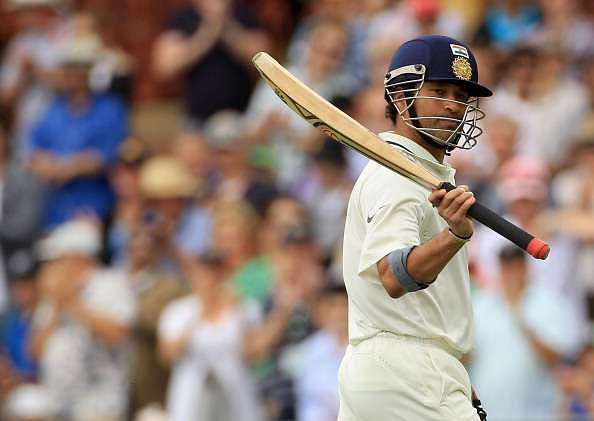
5 legends who unnecessarily prolonged their Test careers
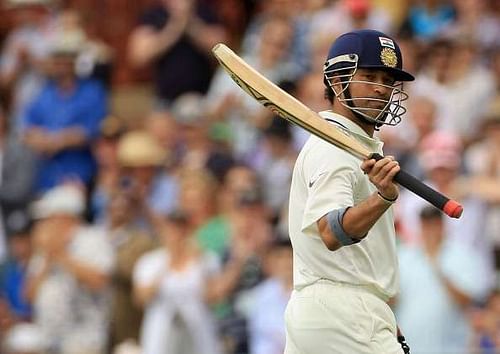
As is often said – Time and tide wait for no man. Even though limited-overs cricket has been referred to as the format with no hiding place for older men, Test cricket has often proved to be even more ruthless on fading players.
Admittedly, the romanticism and euphoria accompanied by an ageing veteran’s game-changing performance stays with us forever. But, the major trade-off will reflect on the results as such efforts are quite rare.
Also read: 5 cricketers who bid goodbye too soon
Let us take a look at five of the most high-profile cricketers who could not live up to the lofty standards that they had set for the better part of their stellar careers and still continued to play for a variety of reasons.
Disclaimer: The list is by no means an attempt to slander the achievements of some of the greatest ever to play the game. Instead, it merely serves as a reminder that Father Time gets the better of everyone in the end.
5. Sir Viv Richards
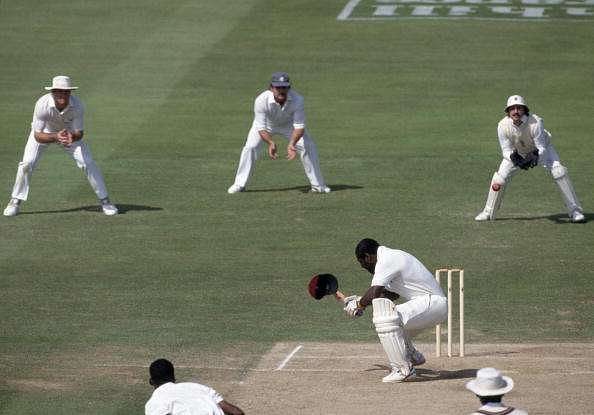
Perhaps the only batsman to intimidate opposition bowlers with his mere presence, Viv Richards made his debut in 1974 and reigned supreme until the fag end of the 80s. However, his remarkable hand-eye coordination, which had formed the core of his batting, threatened to desert him during his last couple of seasons.
Until 20th March 1989, Richards scored 7714 runs from 104 Tests at an average of 52.83 with 23 centuries and stood as a cornerstone in that dominant West Indies lineup. However, from that point till his retirement in August 1991, he remained a shadow of himself and registered just 826 runs from 17 matches at an average of 34.41 with only a solitary century. Nevertheless, the ‘Calypso King’ bid adieu while he was still captain of West Indies.
4. Kapil Dev
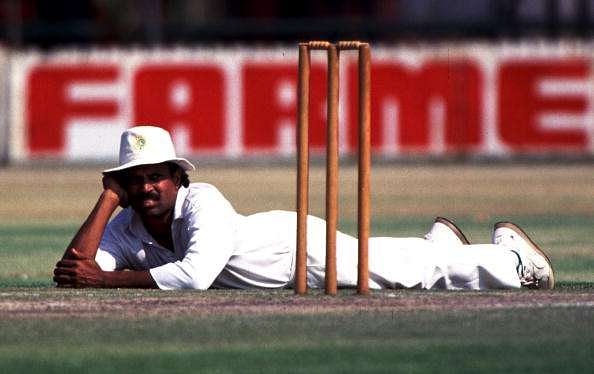
A trailblazer in every aspect, Kapil Dev was India’s first dependable fast bowler. When he made his debut in 1978 against arch-rivals Pakistan, India’s slip cordon exchanged gleeful looks since one of their own had finally begun to thud the ball into the wicket-keeper's gloves. At his zenith, iconic England pacer Fred Trueman referred to him as a 'spectator's delight'.
Having toiled tirelessly without any proper pace partner for the vast majority of his career, Kapil was in the vicinity of long-time competitor Sir Richard Hadlee’s record as the bowler with the most Test wickets ever. From 1st June 1992 till his retirement in March 1994, he could only pick up 33 wickets from 16 Tests which was a sharp contrast to the 401 wickets from 115 matches before that.
While he continued to show glimpses of his typically flamboyant batting, Kapil’s slackening pace had begun to affect his trademark out-swinger. Eventually, he did overtake Hadlee and retired as the then leading Test wicket-taker of all time.
3. Wasim Akram
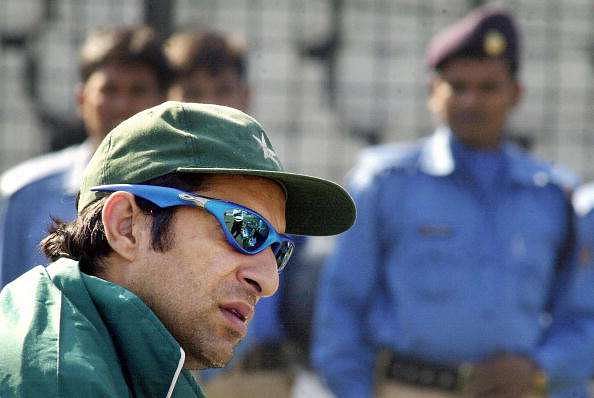
The sight of Wasim Akram waltzing from around the wicket with the ball kept well-hidden was one of the most unforgettable images of the 90s. Despite being burdened with diabetes, he kept persisting and produced numerous memorable spells that have become a part of the game’s folklore.
Upon making his debut at Eden Park in January 1985 till 1999, the left-arm quick picked up 383 wickets from 91 matches with 22 five-wicket hauls. But, post the turn of the millennium, the ability to deliver telling spells started to disappear with his last 13 Tests yielding him only 31 wickets. After retiring from Tests in January 2002, he continued to play white-ball cricket till the 2003 World Cup.
2. Ricky Ponting
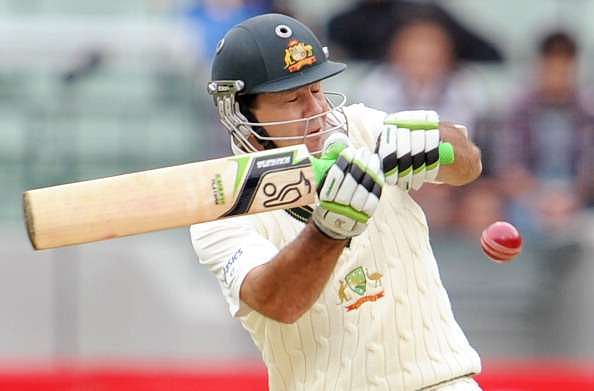
During the mid-2000s, Ricky Ponting was the most ferocious batsman across the globe with his stylish trigger movement and vast array of shots often rendering bowlers hapless. Leading an immensely strong Australian team by example, he plundered runs with consummate ease until his reflexes gave way.
From 10th December 2010 till his retirement in December 2012, Ponting could only tally 1058 runs in 18 Tests at an average of 34.12. Before that period, he averaged 54.27 and scored more than 12,000 runs from 150 matches with 39 tons.
Ironically, the swift pull shot which had been his strongest suit turned into his weakness. The then heir-apparent, Michael Clarke, recently revealed that the Australian selectors would have dropped their all-time leading run-scorer had he not opted to walk away.
1. Sachin Tendulkar
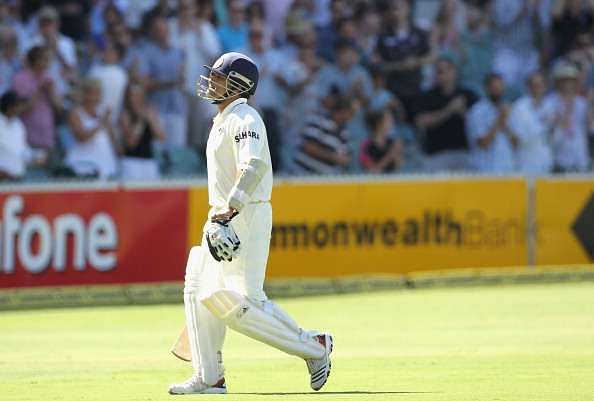
An extraordinary career which had begun in November 1989 was coming to a halt. The Wankhede Stadium echoed in emotion as India’s favourite son was riding off into the sunset. Even as his teammates began to reduce themselves into sub-plots, a moist-eyed Sachin Tendulkar exited the arena with the vast majority of batting records to his name.
However, his last couple of seasons had given quite a few indications that the ‘Little Master’ was nearing his climax. Following the 2010/11 series in South Africa which saw him keep Dale Steyn at bay, Tendulkar's final 23 Tests fetched him just 1229 runs at an average of 32.34 without a single century. If he had hung up his gloves with the 2011 World Cup triumph, the Mumbaikar might have ended up with 14692 runs from 177 matches at an even better average of 56.94.
Despite claims that Tendulkar’s departure might drive away a large number of spectators, Indian cricket continues to endure with Virat Kohli taking over the mantle from his role-model and thus proving that the sport towers above every individual.